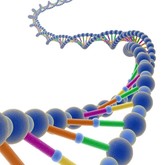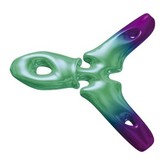Biosimilars
Biosimilars of etanercept
Last update: 20 November 2020
Etanercept is a biological drug that treats autoimmune diseases by inhibiting tumour necrosis factor (TNF); a soluble inflammatory cytokine. Etanercept is indicated for the treatment of rheumatoid arthritis, juvenile idiopathic arthritis and psoriatic arthritis, plaque psoriasis and ankylosing spondylitis.
Biosimilars of epoetin alfa
Last update: 4 November 2019
Epoetin alfa is a human erythropoietin produced in cell culture using recombinant DNA technology. It stimulates erythropoiesis (increases red blood cell levels) and is used to treat anaemia, commonly associated with chronic renal failure and cancer chemotherapy.
Oncobiologics and IPCA create biosimilars alliance
US-based Oncobiologics announced on 2 June 2014 the creation of a two-part alliance for the development, manufacture and commercialization of biosimilar monoclonal antibodies with Indian generics maker IPCA Labs (IPCA).
Top 8 blockbuster biologicals 2013
The top three best-selling drugs during 2013 were biologicals. All three best-sellers are indicated for the treatment of arthritis, and include Abbott’s Humira (adalimumab), Merck’s Remicade (infliximab) and Roche’s Rituxan/MabThera (rituximab).
Biosimilars developer Coherus raises US$55 million investment
US-based biosimilars developer Coherus BioSciences (Coherus) announced on 19 May 2014 that it had raised investments of US$55 million. New investors KKR & Co LP, Venrock, RA Capital Management, Rock Springs Capital and Fidelity Biosciences joined existing investors Sofinnova Ventures, Lilly Ventures and Vivo Capital.
Biosimilars of bevacizumab
Last update: 5 February 2021
Bevacizumab is a humanized monoclonal antibody. It inhibits angiogenesis (the formation of new blood vessels) by blocking the action of vascular endothelial growth factor A (VEGF-A). Bevacizumab can therefore slow the growth of new blood vessels in tumours and is used to treat various cancers, including colorectal, lung, breast, glioblastoma, kidney and ovarian.
ABPI issues updated position paper on biosimilars
On 14 May 2014, the association that represents innovative research-based biopharmaceutical companies in the UK, the Association of the British Pharmaceutical Industry (ABPI), issued the third edition of its position paper on biosimilars.
Pfizer to start phase III biosimilar trastuzumab trial
Pharma giant Pfizer is to start a global phase III trial for a biosimilar version of trastuzumab.
Biosimilars on the horizon
Europe approved its first monoclonal antibody biosimilar, Inflectra/Remsima (infliximab), in September 2013 [1]. But how does the pipeline look for biosimilars and what will be the next biosimilar to be approved?
Merck KGaA to invest Euros 100 million in biosimilars
Germany’s Merck KGaA is looking for new sources of growth, one of which it sees as being biosimilars.












